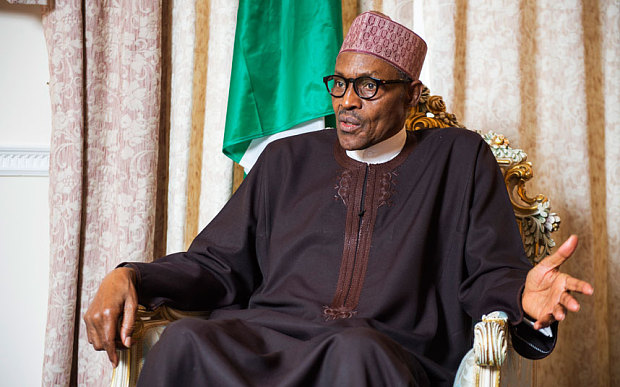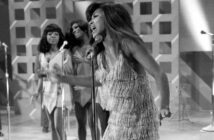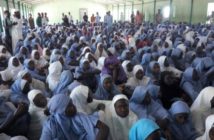By Collins Nweke
Sometime today, President Muhammadu Buhari of Nigeria will arrive in London to join 50 other world leaders at a landmark international anti-corruption summit called by Prime Minister David Cameron. While on air en route London, he would probably be reading news reports about the United States (US) government and the European Union (EU) threats to withdraw support for his anti-corruption crusade on account of reluctance or even failure to reopen the Halliburton bribery scandal. Incidentally he would be sharing Summit and perhaps dinner table with US Secretary of State John Kerry. This will probably constitute private dinner talks between both of them.
Anyone who thought this Halliburton bribery scandal will go away soon without getting to the bottom of it has a big shock waiting. Just to bring you up to speed, the affair dates back to 1994 when the Nigerian government launched an ambitious plans to build the Bonny Island Natural Liquefied Gas Project. The affair had revealed, obviously long before we heard of any Panama Papers, an alleged network of secretive banks and offshore tax havens used to funnel $182 million in bribes to Nigerian officials in exchange for $6 billion in engineering and construction work for an international consortium of companies that included a then Halliburton subsidiary.
Forward to 2016. Prime Minister David Cameron, whose Conservative Party is this week recovering from the loss of London mayoral race to Labour Party’s Sadiq Khan despite a dirty anti-Muslim campaign is calling the “Anti-Corruption Summit London 2016” for three core reasons. Firstly to bring together world leaders, business, non-state actors and civil society to agree a package of practical steps to expose corruption so there is nowhere to hide. Secondly to punish corruption perpetrators and support those affected by corruption and lastly to drive out the culture of corruption wherever it exists. He is said to be giving President Buhari some prominence at the Summit by giving him a speaking slot at the plenary session. Exactly why is not immediately clear. At least not to ordinary mortals like you and I.
We can only surmise that President Buhari’s projected prominence in the London anti-corruption summit is an indication of how highly he is held in the international crusade against corruption. This is as much a blessing as it is a burden. It is a blessing because it places at the feet of Nigeria, some international goodwill that will be priceless resource in the task ahead. It however comes with the burden of high expectation that Mr President will truly stop at nothing, spare no one, no matter how highly placed, in the investigation and prosecution of corruption.
I should come back to the Halliburton affair because I think that it is one of the true tests of the President’s genuine resolve to fight corruption in Nigeria. Our friends and allies in the EU and the US are telling us that there appear to be some foot-dragging by Nigeria, to bring to books, Nigerian individuals already fingered in the investigation carried out in the United States because they are very big wigs. I think that Mr President needs to also do more to prove to critics that his anti-corruption crusade is not selective and that it targets only members of the opposition while some elements within the ranks and file of his ruling APC are said to be equally corrupt with no investigation initiated or arrests made.
The involvement of non-state actors and civil society operatives in the London meeting is a very good idea. Hopefully, unlike government representatives who are supposed to be nice, they can ask more penetrating and why not, even uncomfortable and nasty questions about the true state of global anti-corruption crusade and perhaps compel Western governments to use legal instruments already at their disposal to try, for example former heads of State, implicated in corruption but whose countries are reluctant to put them to trial. Wouldn’t it be fun to hear President Buhari privately ask Secretary John Kerry why he is pressurizing him to take on the big wigs in Nigeria. If the US is so sure of the evidence at its disposal why do they appears unwilling to use its “Foreign Corrupt Practices Act” to bring to trial by themselves, the Nigerian big wigs they perceive to be under shield by the Nigerian government?
I am not sure John Kerry or the US for that matter has ever heard this saying “Naija no dey fear threat” If they have, then there is nothing to worry about the threat to withhold assistance to Nigeria because President Buhari is not expected to be shaken by it. That said, it may be fair to assume that given President Buhari’s dogmatic credentials, he is not leaving any stone unturned in fighting corruption. The man means business I would think. But the man also needs time. Should he be given all the the time in the world? No, because the world is impatient to see arrant corruption, those with recklessness and impunity committed to the annals of history. One low-hanging fruit though is for him to act in ways that show that current members of his ruling APC are also focus of corruption investigations. He needs no more time to do that if he cares whether his corruption fight should be taken seriously.
Collins Nweke is a Nigerian and parliamentarian In Belgium




